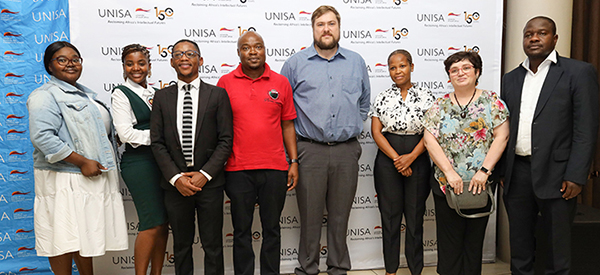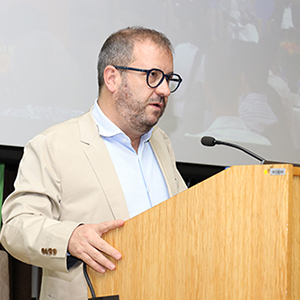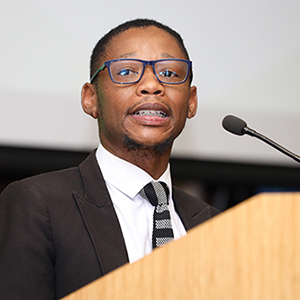College of Economic & Management Sciences
Promoting financial education in a tight economy
Unisa's Colleges of Accounting Sciences and Economic and Management Sciences recently hosted the 6th Annual Budget Breakfast, themed "Financial literacy and how to stretch the rand for ordinary citizens". The robust discussion aimed to break down and analyse South African Finance Minister Enoch Godongwana’s 2024 budget speech, focusing on issues such as financial sustainability in the public sector, inequality and poverty, and tax capacity and financial literacy.

Unisa’s Colleges of Accounting Sciences and Economic and Management Sciences hosted the 6th Annual Budget Breakfast, themed "Financial literacy and how to stretch the rand for ordinary citizens".
Max Alier, Senior Representative from the International Monetary Fund (IMF) South Africa, stressed that "South Africa finds itself in a low growth equilibrium within decades, creating tremendous unemployment, poverty and equality issues". He explained: "The minister’s presentation recognised growth challenges and the need for fiscal consolidation." Alier added that the IMF believes that the budget was balanced and ambitious in aiming to generate a primary surplus and stabilise debt over the years.

Max Alier, Senior Representative from the International Monetary Fund (IMF) South Africa |

Prof Cameron Modisane, Deputy Executive Dean of the College of Accounting Sciences |
Prof Cameron Modisane, Deputy Executive Dean of Unisa’s College of Accounting Sciences, presented on financial sustainability in the public sector and principles and research overview on financial sustainability, among others. "Financial sustainability in the public sector ensures that its organisations generate sufficient revenue to meet current and long-term financial obligations for continuous operations," said Modisane.
Modisane further mentioned the public sector’s financial sustainability challenges and the significant imbalance between revenue generation and expenditure patterns, especially in municipalities. He elaborated: "With the increasing demands for services, municipalities often struggle to cope and meet expectations, which is aggravated by economic fluctuations, ageing infrastructure and insufficient funding sources." According to Modisane, for South Africa to have sustainable financial stability, there must be substantial leadership around government spending.
Advocate (CA) Azwindini Magadani, Tax Director at SNG Grant Thornton, mentioned that for the 2023/2024 budget, the South African Revenue Service is projected to collect over R1,8 trillion based on economic growth. "For South Africa to be competitive in the global age, we must revise corporate tax by reducing it," he maintained. Magadani also indicated that South Africa is still addressing the issue of foreign direct investment, and he highlighted that some investors do not prefer paying high taxes but rather go where they pay low taxes.
Additionally, Dr Philip Kotze, Senior Lecturer at Unisa’s College of Economic and Management Sciences, stated that most South African citizens lack basic financial literacy, which is problematic as financial changes affect everyone. He, therefore, urged for financial education to be intensified in South Africa.
#Unisa150
* By Mmamokete Masekoa, Journalist, Unisa Radio
Publish date: 2024/03/04

 Unisa co-hosts G20 community outreach in the Eastern Cape
Unisa co-hosts G20 community outreach in the Eastern Cape
 Unisans gain membership of prestigious science academies
Unisans gain membership of prestigious science academies
 Advocating for disability transformation through servant leadership
Advocating for disability transformation through servant leadership
 Unisa Press continues to illuminate the publishing space
Unisa Press continues to illuminate the publishing space